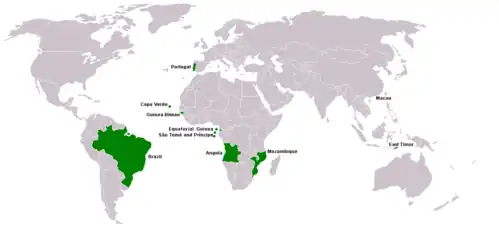Portal:Language

Introduction
.jpg)
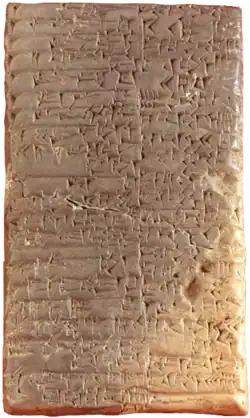

Language is a structured system of communication that consists of grammar and vocabulary. It is the primary means by which humans convey meaning, both in spoken and signed forms, and may also be conveyed through writing. Human language is characterized by its cultural and historical diversity, with significant variations observed between cultures and across time. Human languages possess the properties of productivity and displacement, which enable the creation of an infinite number of sentences, and the ability to refer to objects, events, and ideas that are not immediately present in the discourse. The use of human language relies on social convention and is acquired through learning.
Estimates of the number of human languages in the world vary between 5,000 and 7,000. Precise estimates depend on an arbitrary distinction (dichotomy) established between languages and dialects. Natural languages are spoken, signed, or both; however, any language can be encoded into secondary media using auditory, visual, or tactile stimuli – for example, writing, whistling, signing, or braille. In other words, human language is modality-independent, but written or signed language is the way to inscribe or encode the natural human speech or gestures.
Depending on philosophical perspectives regarding the definition of language and meaning, when used as a general concept, "language" may refer to the cognitive ability to learn and use systems of complex communication, or to describe the set of rules that makes up these systems, or the set of utterances that can be produced from those rules. All languages rely on the process of semiosis to relate signs to particular meanings. Oral, manual and tactile languages contain a phonological system that governs how symbols are used to form sequences known as words or morphemes, and a syntactic system that governs how words and morphemes are combined to form phrases and utterances.
The scientific study of language is called linguistics. Critical examinations of languages, such as philosophy of language, the relationships between language and thought, how words represent experience, etc., have been debated at least since Gorgias and Plato in ancient Greek civilization. Thinkers such as Jean-Jacques Rousseau (1712–1778) have argued that language originated from emotions, while others like Immanuel Kant (1724–1804) have argued that languages originated from rational and logical thought. Twentieth century philosophers such as Ludwig Wittgenstein (1889–1951) argued that philosophy is really the study of language itself. Major figures in contemporary linguistics include Ferdinand de Saussure and Noam Chomsky. (Full article...)
Selected language -
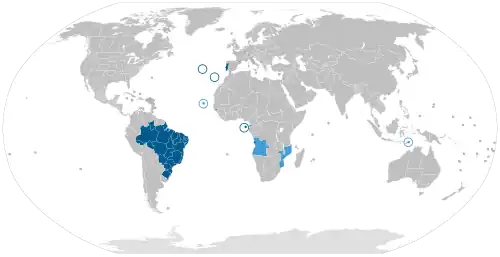
Portuguese (endonym: português or língua portuguesa) is a Western Romance language of the Indo-European language family originating from the Iberian Peninsula of Europe. It is spoken chiefly in Brazil, Portugal, and several countries in Africa, as well as by immigrants in North America, Europe, and South America. With approximately 267 million speakers, it is listed as the fifth-most spoken native language.
Portuguese-speaking people or nations are known as Lusophone (lusófono). As the result of expansion during colonial times, a cultural presence of Portuguese speakers is also found around the world. Portuguese is part of the Ibero-Romance group that evolved from several dialects of Vulgar Latin in the medieval Kingdom of Galicia and the County of Portugal, and has kept some Celtic phonology. (Full article...)
Did you know (auto-generated)

- ... that Eritrean poet Yirgalem Fisseha Mebrahtu was imprisoned for six years without trial, and later published poems in Tigrinya based on her experience?
- ... that Halyna Kuzmenko promoted the Ukrainization of the Makhnovist movement, successfully increasing the use of the Ukrainian language by Russian speakers?
- ... that Navidades by Luis Miguel was the first Spanish-language album to enter the Billboard Top Holiday Albums since 1966?
- ... that the Akademia Nasionala del Ladino in Israel is dedicated to preserving the Judaeo-Spanish language?
- ... that a spokesman for the Kaw Nation credited Robert L. Rankin with single-handedly preserving their language?
- ... that Nikolaus Mollyn was the first book printer in Riga, and the first to print a book in Latvian within the present-day territory of Latvia?
More did you know -
- ...that linguist Asim Peco is an expert in the language of eastern Herzegovina?
- ...that three different languages that used to be spoken in Nicaragua are now extinct?
- ...that Russian is spoken in Israel by about 20% of the total population?
- ...that the name of the koala derives from the word gula in Dharuk and other Yuin–Kuric languages?
Categories
Linguistics: Computational linguistics • Grammar • Historical linguistics • Morphology • Phonetics • Phonology • Pragmatics • Reading • Semantics • Sociolinguistics • Syntax • Writing
Languages: Language families • Pidgins and creoles • Sign languages
Linguists: By nationality • Historical linguists • Morphologists • Phoneticians • Phonologists • Sociolinguists • Syntacticians • Translators
Stubs: Constructed languages • Languages • Linguists • Pidgins and creoles • Typography • Vocabulary and usage • Writing systems
Full Language category tree
|
|---|
|
Select [►] to view subcategories
Language Languages Outlines of languages Language acquisition Language-related awards Language comparison Language competitions Natural language and computing Fiction about language Language games Gender in language Language identifiers Language interpretation Language mechanics Language reform Linguistics Language movements Language and mysticism Oral communication Personifications of languages Philology Philosophy of language Language policy Self-reference Sign language Sociology of language Language software Speech Speech and language pathology Speech surrogacy Statements Terminology Vocabulary Works about language Writing Language stubs |
Related portals
Selected topic -
Swedish has a large vowel inventory, with nine vowels distinguished in quality and to some degree in quantity, making 18 vowel phonemes in most dialects. Another notable feature is the pitch accent, a development which it shares with Norwegian. Swedish pronunciation of most consonants is similar to that of other Germanic languages.
There are 18 consonant phonemes, of which /ɧ/ and /r/ show considerable variation depending on both social and dialectal context. (Full article...)
Language News
- 13 June 2025 – Middle Eastern crisis
- Exiled crown prince Reza Pahlavi, the son of Iran's last Shah, writes in Farsi calling for the Iranian military to abandon the Islamic Republic and accuses Supreme Leader Ayatollah Ali Khamenei of forcing Iranians into the war. He also refers to the war as "Khamenei's war and the Islamic Republic's war". (Jerusalem Post)
- 1 March 2025 – Executive orders in the second presidency of Donald Trump
- United States President Donald Trump signs an executive order designating English as the country's official language. (The Guardian)
- 27 February 2025 –
- OpenAI releases their latest large language model, GPT-4.5. (The Verge)
Topics

Languages of Africa: Arabic, Chadic, Cushitic, Kanuri, Maasai, Setswana, Swahili, Turkana, Xhosa, Yoruba, Zulu, more...
Languages of the Americas: Aleut, Carib, Cherokee, Inuktitut, Iroquois, Kootenai, Mayan, Nahuatl, Navajo, Quechuan, Salish, American Sign Language, more...
Languages of Asia: Arabic, Assamese, Balochi, Bengali, Chinese, Japanese, Hajong, Hebrew, Hindustani, Kannada, Kokborok, Marathi, Khasi, Korean, Kurdish, Malayalam, Manipuri, Meithei, Mongolian, Persian, Rajasthani, Sindhi, Sanskrit, Sylheti, Tamil, Tanchangya, Tulu, Telugu, Tibetan, Thai, Turkish, Vietnamese, Khowar, more...
Languages of Austronesia: Austric, Fijian, Hawaiian, Javanese, Malagasy, Malay, Maori, Marshallese, Samoan, Tahitian, Tagalog, Tongan, Auslan, more...
Languages of Europe: Basque, Czech, Danish, Dutch, English (book), French, German, Greek, Italian, Latin, Leonese, Norwegian, Polish, Portuguese, Romanian, Russian, Slovak, Spanish, Ukrainian more...
Constructed languages: Esperanto, Ido, Volapük, more...
Agglutinative language, Analytic language, Constructed language, Creole, Context-free language, Extinct language, Dialect, Fusional language, Inflectional language, International language, Isolating language, Language isolate, National language, Natural language, Pidgin, Pluricentric language, Polysynthetic language, Proto-language, Sign language, Spoken language, Synthetic language, Variety (linguistics)

Applied linguistics, Cognitive linguistics, Accent (dialect), Computational linguistics, Descriptive linguistics, Eurolinguistics, Generative linguistics, Historical linguistics, Lexicology, Lexical semantics, Morphology, Onomasiology, Phonetics, Phonology, Pragmatics, Prescription, Prototype semantics, Psycholinguistics, Semantics, Stylistics, Sociolinguistics, Syntax
See also: List of linguists
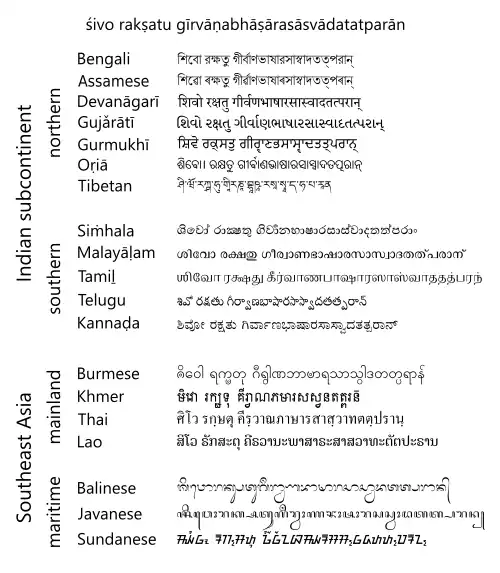
Alphabets: Arabic alphabet, Bengali alphabet, Cyrillic alphabet, Hebrew alphabet, Latin alphabet, more...
Other writing systems: Abjad, Abugida, Braille, Hieroglyphics, Logogram, Syllabary, SignWriting, more..
See also: History of the alphabet, Script
Associated Wikimedia
The following Wikimedia Foundation sister projects provide more on this subject:
-
Commons
Free media repository -
Wikibooks
Free textbooks and manuals -
Wikidata
Free knowledge base -
Wikinews
Free-content news -
Wikiquote
Collection of quotations -
Wikisource
Free-content library -
Wikiversity
Free learning tools -
Wiktionary
Dictionary and thesaurus
Find a language
| Enter an ISO 639 code to find the corresponding language article |
-
 List of all portals
List of all portals -

-
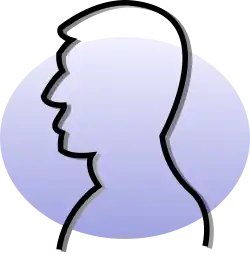
-

-
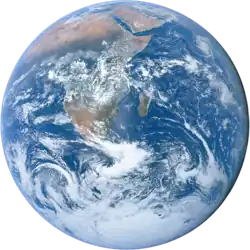
-

-

-

-

-

-
 Random portal
Random portal -
 WikiProject Portals
WikiProject Portals
